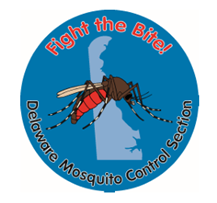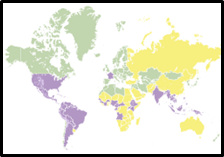Zika Virus

Zika virus is a mosquito-borne disease that is primarily spread by the bite of Aedes aegypti and Aedes albopictus mosquitoes. While Zika virus is usually non-threatening for adults, it can be dangerous for pregnant mothers who can pass the virus to their baby.
Click the map below for the most up to date Zika virus risk information before you make travel plans.
What are the Symptoms of Zika Virus?
Most people who are infected with Zika virus will not have symptoms or have mild symptoms. Common symptoms include:
- Fever
- Rash
- Headache
- Joint pain
- Red eyes (conjunctivitis)
- Muscle pain
Symptoms can last for days to a week and are not usually life-threatening for adults.
Potential for Birth Defects
Zika virus can be passed from a pregnant woman to her fetus. Infection during pregnancy can cause microcephaly and other severe birth defects like decreased brain tissue, damage to the back of the eye, joints with limited range of motion, and too much muscle tone restricting body movement after birth.
How is Zika Virus Spread?
Zika virus can spread through several different methods:
-
The bite of an infected Aedes aegypti or Aedes albopictus mosquito
- Both species lay eggs in artificial containers like tires, buckets, rain barrels, etc. and bite during the daytime.
- In the eastern United States, Aedes aegypti are common only as far north as South Carolina. Aedes albopictus are common in Delaware.
- Mother to baby.
-
Sex with a person who has Zika.
- Sex includes vaginal, anal, and oral sex and the sharing of sex toys.
- Zika virus can stay in semen longer than in other body fluids.
- Blood transfusions.
Aedes aegypti and Aedes albopictus Life Cycle

Mosquitoes live part of their lives in water. After taking a blood meal, female Aedes aegypti and Aedes albopictus mosquitoes will lay their eggs on the inner walls of containers with water. Containers include items like buckets, wheelbarrows, rain gutters, tarps, bird baths – basically anything that holds water. Within a few days (temperature dependent), these eggs hatch into larvae. The larvae feed on organic matter in water and need to come to the surface to breathe with their siphon. After the larval stage, the larvae turn into pupae and stop eating. After a few days to a week, the adult mosquito emerges from the pupal case. It takes about 7-10 days for an egg to develop into an adult mosquito.
Diagnosis
Health care providers diagnose Zika virus infection based on:
- Recent travel to a country with a current Zika outbreak
- Signs and symptoms
- Laboratory tests of blood or urine
Testing is recommended if you have symptoms of Zika and have traveled to an area with risk of Zika – especially if you are a pregnant woman.
Treatment
Avoiding Mosquito Bites
The best way to reduce your risk of Zika is to avoid mosquito bites.
-
Use an EPA-registered insect repellent with DEET, picaridin, IR3535, oil of lemon eucalyptus, para-menthane-diol, or 2-undecanone. Always make sure to follow label instructions.
- Use the EPA’s search tool to find the insect repellent that is right for you.
- Wear loose-fitting, long-sleeved shirts and pants. You can use 0.5% permethrin to treat clothing and gear. Permethrin is an insecticide that kills or repels mosquitoes.
-
For babies and children:
- Cover strollers and baby carriers with mosquito netting.
- When applying insect repellent to babies and children, do not apply repellent to their hands, eyes, mouth, cuts, or irritated skin. Adults should apply insect repellent to their hands and then use their hands to apply to a child’s face.
- Sleep under a mosquito bed net if air conditioned or screened rooms are not available or if sleeping outdoors.
- Prevent sexual transmission of Zika virus by using condoms or not having sex.
Mosquito Prevention at Home

-
Remember, mosquito larvae can develop in standing water around your home in artificial containers like:
- Buckets
- Tires
- Bird baths
- Boats
- Plastic tarps
- Wheelbarrows
- Clogged gutters
- Unmaintained swimming pools
- Storms drains and catch basins
- Remember the three T’s: Tip, toss, or turn over containers that hold water around your home!
- Change the water in bird baths every week.
- Clean leaves and debris from gutters.
- Repair any tears or rips in window and door screens.
- Recycle old tires.
- Trim bushes and vegetation to reduce adult resting habitat.
Mosquito Surveillance and Control

- DNREC’s Mosquito Control Section provides mosquito control services throughout Delaware to maintain quality of life and protect public health by reducing the possibility of mosquito-borne illnesses.
- During the warmer months, DNREC monitors and treats mosquito populations that emerge from wetland areas found throughout the state, including ditches, stormwater ponds, wet woodlands, and coastal salt marshes.
- You can report mosquito complaints to the DNREC Mosquito Control Section Field Offices. The Newark Office covers the northern half of Delaware including the Dover area and can be reached at 302-836-2555. The Milford Office serves the southern half of Delaware below Dover and can be reached at 302-422-1512.
For Providers
- Training
- Clinical Evaluation & Disease (CDC)
- Sexual Transmission
- Infection Control
- DPH Clinical Guidance on Travel-Related Screening
- Delaware Arbovirus Case Report Form
Additional Information
- Flyer for Pregnant Women in (English), (Spanish), (Haitian)
- Facts and Information on Zika and Mosquito Control in (English), (Spanish), (Haitian)
- DHSS Press Release on Travel Warning (January 29, 2016)
- DHSS Press Release on Delaware’s First Travel-Associated Zika Case (February 10, 2016)
-
 Please note: Some of the files available on this page are in Adobe PDF format which requires Adobe Acrobat Reader. A free copy of Adobe Acrobat Reader can be downloaded directly from Adobe . If you are using an assistive technology unable to read Adobe PDF, please either view the corresponding text only version (if available) or visit Adobe’s Accessibility Tools page.
Please note: Some of the files available on this page are in Adobe PDF format which requires Adobe Acrobat Reader. A free copy of Adobe Acrobat Reader can be downloaded directly from Adobe . If you are using an assistive technology unable to read Adobe PDF, please either view the corresponding text only version (if available) or visit Adobe’s Accessibility Tools page.




